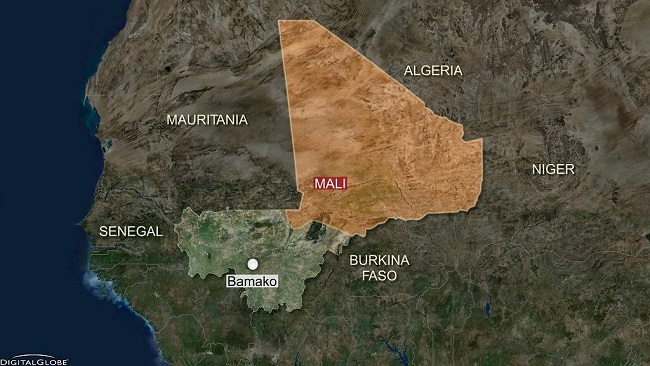Mali: Ethnic violence kills 136, army generals sacked
Mali’s government on Sunday announced the sacking of senior military officers and the dissolution of an ethnic militia, a day after the massacre of more than 130 Fulani villagers, including women and children.
Survivors of the attack said ethnic Dogon hunters carried out the deadly raid a day earlier in Ogossagou, a village in central Mali inhabited by the Fulani community.
At least 136 men, women and children were killed in the attack, according to a “provisional toll,” public television ORTM said late Sunday. The television showed images of burned huts and livestock and shell casings in the village.
In the wake of the violence, the army chief of staff General M’Bemba Moussa Keita was removed and replaced by General Abdoulaye Coulibaly, while chief of land forces General Abdrahamane Baby was replaced by Brigadier-General Keba Sangare.
Mali’s Prime Minister Soumeylou Boubeye Maiga said in a statement after an emergency cabinet meeting that President Ibrahim Boubacar Keita had also ordered the dissolution of an anti-militant vigilante group called Dan Na Amassagou.
Some of the group’s ethnic Dogon fighters were suspected of being behind the attack.
The dissolution of the militia was to send a clear message, Maiga told journalists: “The protection of the population will remain the monopoly of the state.”
While local attacks are fueled by accusations of Fulani herders grazing cattle on Dogon land and disputes over access to land and water, the area is also troubled by Takfiri influence.
The Takfiri militants active in the region have consistently tried to exploit a sense of persecution among the Fulani, whose semi-nomadic, pastoral way of life sometimes brings them into conflict with more settled farmers like the Dogon, by arming and training them. Some Dogon traditional hunters in turn took up arms to protect themselves.
The ethnic bloodshed took place less than a week after a deadly assault by Takfiri terrorists on an army post killed at least 23 soldiers, also in Mali’s central region. That attack was claimed by an al-Qaeda affiliate.

A government delegation led by Justice Minister Tiena Coulibaly went to the site of the latest massacre Sunday. They were sent by the president to “tell the people of Ogossagou that what happened here is unacceptable and that it will not go unpunished,” Coulibaly said.
Malians have grown increasingly frustrated by the failure of government forces to protect them from both Takfiri militant onslaughts and ethnic reprisals. But the massacre of civilians at the villages of Ogossagou and Welingara on Saturday, which left the charred bodies of women and children smoldering in their homes, has shocked a population long inured to gratuitous killing.
UN, EU react
The UN Children’s Fund said, “Malian children are paying a heavy price for the intensification of violence.”
“Growing insecurity since 2017 has led to an increase in murders, mutilations and the recruitment of children,” UNICEF said.
For its part, the European Union called for “immediate steps (including) the disarmament and dismantling of all militias” in Mali.
It was the deadliest attack since the end of the 2013 French-led military intervention in the country.
The massacre took place as a delegation from the UN Security Council visited the Sahel region to assess the threats being posed by the Takfiri militants there.
“The secretary general is shocked and outraged” by the bloodshed, Antonio Guterres’s spokesman said in a statement late Saturday.
The UN chief called on the Malian authorities “to swiftly investigate it and bring the perpetrators to justice,” the statement added.
Guterres’s spokesman said the UN mission in Mali, MINUSMA, provided air support to deter further attacks and assisted with the evacuation of the injured.
The attack was launched at dawn on Saturday in the village near the border with Burkina Faso, in a district that has seen frequent inter-communal violence.
(Source: Agencies)





